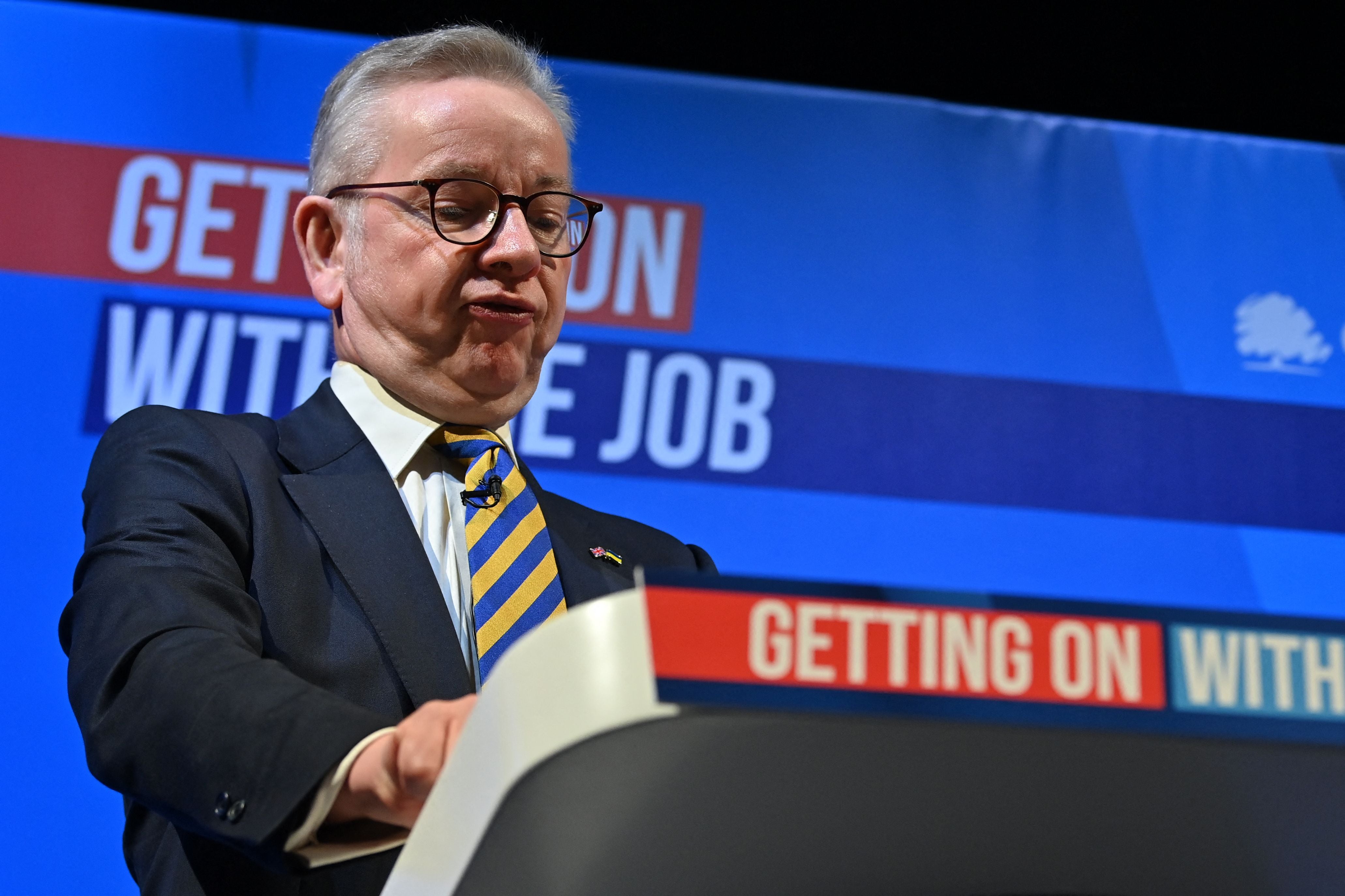The housebuilding target was unrealistic – the question is what Michael Gove would put in its place
The housing secretary tried to cover his retreat from the promise of 300,000 new homes a year by distracting us, writes John Rentoul


Michael Gove seems to be trying to distract attention from the breaking of a manifesto promise by putting on a bit of a show. This morning, he gave a cheerful TV interview in which he did a range of voices, putting on a mock-serious tone to discuss a rumoured “emergency Budget” over which journalists, he said, were excited because it would be a “capital letters Big News Story”, talk of which the Treasury had “rightly” responded to by saying “calm down” – for some reason, as Gove had it, in a Liverpool accent.
Even as he confirmed in another interview that the government was unlikely to meet its target of building 300,000 homes per year by 2025, he sought to cover his embarrassment by saying he didn’t want us to be “tied to a Procrustean bed” – a reference that had Radio 4 listeners googling the Greek god who stretched (or amputated parts of) his guests so that they would fit into his iron bed.
The actual retreat from the manifesto was executed with a poetic touch: “Arithmetic is important; so is beauty; so is belonging; so is democracy.” In the background, there was the gentle whooshing noise of another target being missed. There have been many of those since the Tony Blair government last fulfilled its quota of 200,000 new homes a year in 2006.
Gordon Brown promised 240,000 a year (not delivered); David Cameron scaled that back to 200,000 a year (not delivered); in 2015 he repeated it in the form of a million over five years (also not delivered); Theresa May then offered 300,000 a year by the middle of the decade, in a pledge that was restated by Boris Johnson and has now been discontinued.
It was never likely to be met. It is difficult to build large numbers of homes in the places where people want to live in the UK. As Gove put it, arithmetic is in conflict with democracy, in that people don’t mind a bit of tasteful “densification” of existing built-up areas, but they don’t want new building in the countryside.
Big-number targets appeal to prime ministers looking for re-election, and to manifesto-writers looking for bold but plausibly deliverable promises. But actually making it happen is a quite different thing altogether. Every critic has an easy answer, the usual being that we should “build more homes to cut house prices”, as if either half of that equation were simple. This critic has a different answer, which is to abolish stamp duty and raise council tax, especially on more expensive homes, as an annual tax on house prices. That wouldn’t get many more houses built, but by making it easier to buy and sell, it would allocate existing housing stock more efficiently, which would have a similar, one-off effect.
But those kinds of reform can be introduced only at the start of a government. They produce winners and losers, and are therefore also incompatible with democracy in the two years before an election, because the complaints of the losers would be louder than the thanks from the winners.
To keep up to speed with all the latest opinions and comment sign up to our free weekly Voices Dispatches newsletter by clicking here
Gove is politically astute enough to know this well. He was brought into the levelling-up department after the revolt of the nimbys killed off the law to relax planning restrictions that was drafted by Robert Jenrick, his predecessor. That was the moment when the 300,000 target was killed off (Jenrick said yesterday in the Commons that it was going to be missed “by a country mile”), and Gove knew that his job was to manage the funeral.
He has approached the task with his usual energy and creativity. Distraction is a large part of the strategy, not just with comic voices and allusions to Greek myths, but with a series of good policies – or at least, good policy headlines – promoted at the same time. He persuaded property companies to pay for replacing dangerous cladding on blocks of flats; his bill in the Queen’s Speech also imposes a levy on them to pay for more social housing (headlined as a boost to “council housing” in The Sunday Telegraph); and he has an array of other policy baubles, from local referendums to forcing landlords to sell off empty high-street shops.
Housebuilding targets are pointless and mostly unrealistic. Boris Johnson should never have agreed to this one; what matters is what Gove can achieve instead in the last two years of this parliament.



Join our commenting forum
Join thought-provoking conversations, follow other Independent readers and see their replies
Comments